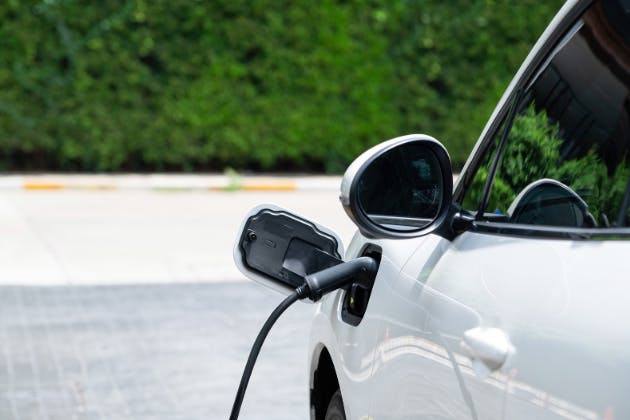With more drivers in the UK switching to electric vehicles, having the right charging solution at home or at your workplace has never been more important. The type of EV charger you choose can affect how quickly your vehicle charges, the convenience of daily use, and even your long-term running costs. Understanding the different options will help you make the right choice for your needs.
Types Of EV Chargers
There are several types of EV chargers available, each designed to suit different situations and usage requirements. From slow charging at home to rapid charging on the go, knowing the differences can make the decision much easier.

Slow Chargers (Up To 3kW)
Slow chargers are the most basic option and usually connect to a standard three-pin plug. They provide around 2–3 kW of power and can take more than 12 hours to fully charge a vehicle. While this may work for occasional or emergency use, it is not the most efficient choice for daily charging.
Average time to fully charge: 12–14 hours
Fast Chargers (7kW–22kW)
Fast chargers are the most popular option for households and workplaces. A 7 kW charger can usually recharge an EV in 6–8 hours, making it ideal for overnight charging. A 22 kW charger offers quicker charging but typically requires three-phase power, which most UK homes do not have.
Average time to fully charge: 3–8 hours, depending on the unit
Rapid Chargers (43kW–50kW)
Rapid chargers are designed for speed and are widely available at motorway services and public charging points. They deliver enough power to charge most vehicles to 80% in under an hour, after which they slow down to protect the battery. Due to their cost and high power demand, they are not used in residential installations.
Average time to 80% charge: 40 minutes
Ultra-Rapid Chargers (150kW–350kW)
Ultra-rapid chargers are the fastest currently available, delivering very high charging speeds. Only certain modern EVs can handle them, but this will change as technology develops. These chargers are mainly found at motorway service stations, making them ideal for long-distance drivers.
Average time to 80% charge: 20–30 minutes
Smart Chargers
Smart chargers are becoming increasingly popular thanks to their convenience and efficiency. These systems can be controlled through an app, allowing you to schedule charging times, track energy usage, and even take advantage of off-peak electricity tariffs. They are an excellent option for homeowners looking to integrate charging with renewable energy solutions such as solar PV installation in Portsmouth or Hampshire.
What Are The Different Charger Connection Types?
Not every EV uses the same connector. Here are the main types you’ll come across in the UK:
- Type 1 (3kW–7kW): Mostly found on older EVs, particularly from Asian manufacturers.
- Type 2 (3kW–43kW): The standard connector for most EVs in the UK and Europe.
- CHAdeMO (25kW–100kW): Used for rapid charging, often on Japanese models.
- CCS (50kW–350kW): Widely used in Europe, supporting rapid and ultra-rapid charging.
Most public charging points now provide multiple connector types to ensure compatibility.
Tethered Vs Untethered EV Chargers
When installing a home charger, you’ll need to decide between a tethered or untethered unit.
- Tethered chargers: Come with a permanently attached cable, making them quick and convenient.
- Untethered chargers: Require you to use your own cable, offering more flexibility if you change cars in the future.
The right choice depends on whether you value convenience or long-term adaptability.
Looking For EV Charger Installation In Portsmouth And Hampshire?
GEO M&E Ltd provides expert EV charger installation across Portsmouth and Hampshire, offering tailored services for homeowners and businesses. Call us on 02392388799 or email office@geo-me.co.uk to discuss your options.


